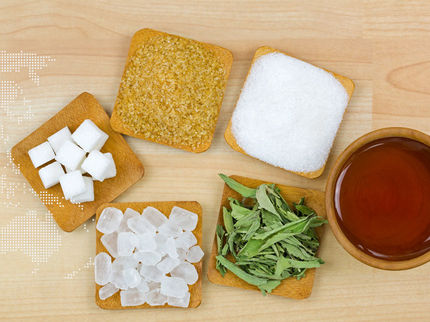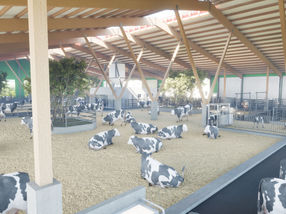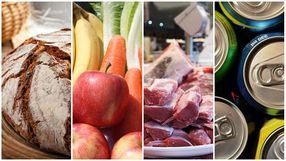Sugar sweetness fills?
What taste research reveals
Advertisement
To date, little is known about the extent to which the taste perception of sugar contributes to satiation. A recent study by Austrian and German scientists* led by Veronika Somoza and Barbara Lieder now provides new insights into the relationship between the sweet taste of sugar, energy intake and hunger-saturation regulation. The study was published in the journal "Nutrients".

Photo by Rod Long on Unsplash
The sweet taste of sugar is very popular worldwide. In Austria and Germany alone, annual per capita consumption is around 33 and 34 kilograms respectively. Sugar is therefore playing an ever-increasing role in the nutrition and health of the population, especially in terms of body weight. Nevertheless, little is known about the molecular (taste) mechanisms by which sugar influences food intake, regardless of its energy content.
Taste receptor and satiety regulation
"We have therefore investigated the role of sweet taste receptor activation in the regulation of satiety," says Veronika Somoza, deputy director of the Institute of Physiological Chemistry at the University of Vienna and director of the Leibniz Institute of Food Systems Biology at the Technical University of Munich.
The scientists* conducted a blinded cross-over intervention study with glucose and sucrose. This study involved 27 healthy men aged between 18 and 45 years. The subjects received either a 10 percent (w/v, weight percent) glucose or sucrose solution or one of the two sugar solutions with an additional 60 ppm "lactisole" (English term). Lactisole is a substance that binds to a subunit of the sweet receptor and thus reduces the perception of sweet taste. Despite different types of sugar, all test solutions with and without lactisole had the same energy content.
Two hours after drinking the respective test solution, the participants were allowed to have as much breakfast as they wanted. Shortly before and during the two-hour waiting period, the researchers took blood samples from the test subjects at regular intervals and measured their body temperature.
On average 100 kilocalories more
After consuming the lactisole-containing sucrose solution, the participants took in about 13 percent more food energy from breakfast - about 100 kilocalories more than after drinking the sucrose solution without lactisole. The subjects in this test group also experienced a reduction in body temperature and serotonin levels in the blood. Serotonin is a neurotransmitter and tissue hormone which, among other things, has an appetite-suppressing effect. In contrast, the researchers observed no differences after administration of the lactisole-containing glucose solution and the pure glucose solution.
"Our results indicate that sucrose, regardless of its energy content, modulates saturation regulation as well as energy intake via the sweet taste receptor," explains Barbara Lieder, head of the Christian Doppler Laboratory for Taste Research and also deputy director of the Institute of Physiological Chemistry at the Faculty of Chemistry of the University of Vienna.
The first author of the study, Kerstin Schweiger from the University of Vienna, adds: "Why we could not observe the 'lactisole effect' in glucose, we do not yet know exactly. However, we suspect it is because glucose and sucrose activate the sweet receptor in different ways. We also assume that sweet receptor independent mechanisms play a role.
"So there is still a lot of research needed to clarify the complex relationships between sugar consumption, taste receptors and saturation regulation at the molecular level," said Somoza. This is particularly true as the sweet receptors are also found in the digestive tract and little is known about their function there. However, the first steps have been taken.
Note: This article has been translated using a computer system without human intervention. LUMITOS offers these automatic translations to present a wider range of current news. Since this article has been translated with automatic translation, it is possible that it contains errors in vocabulary, syntax or grammar. The original article in German can be found here.
Original publication
Sweet Taste Antagonist Lactisole Administered in Combination with Sucrose, But Not Glucose, Increases Energy Intake and Decreases Peripheral Serotonin in Male Subjects: Schweiger K et al., Nutrients 2020, 12(10), 3133

































































